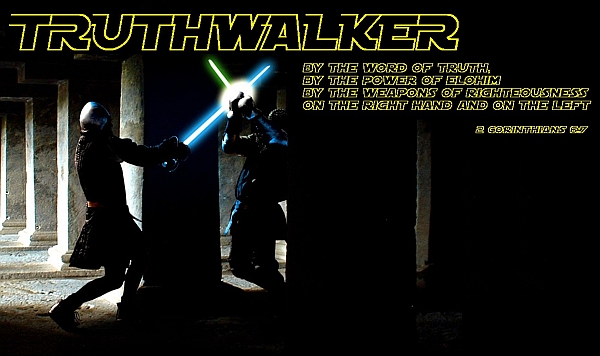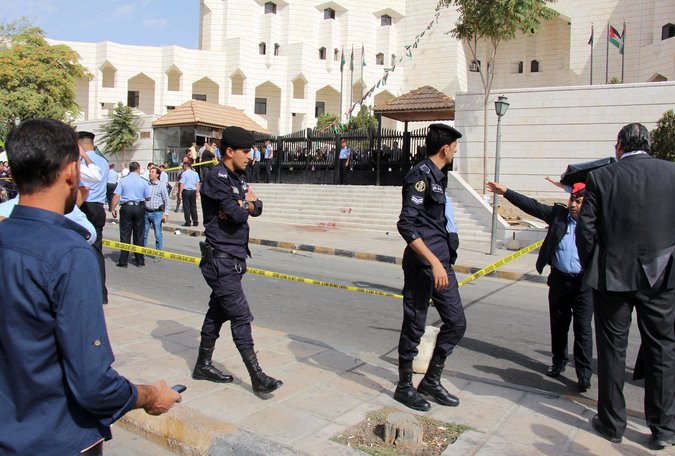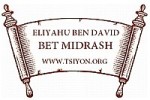Need to talk to us? - In the USA and Canada just call us toll free at (888) 230-2440 for help. Internationally, email us and we will arrange a phone or Skype call for you.
****************************************
From Eliyahu
Hello friends,
As I write I wait with you for the "day no one knows" - that is, Yom Teruah, The Day of Shouting, The Day of Trumpets. That is the feast day that arrives on the 1st day of the 7th month. It is the only Biblical feast day on a 1st day of the month, which is why it is called the "day no one knows." Since the dark of the moon before the new moon can last either two days or three days, nobody knows for sure exactly when the first day of the 7th month will be.
As you may already know, the Scriptures seem to indicate that Y'shua will return on Yom Teruah, of a year in the not-too-distant future. In Matthew 24 He laid out a pattern of signs identifying the generation leading up to His coming - this generation. He said;
"Most certainly I tell you, this generation [that manifests the signs] will not pass away, until all these things are accomplished. Heaven and earth will pass away, but my words will not pass away. But no one knows of that day and hour, not even the angels of heaven, but my Father only." Matthew 24:34-36
Messiah's statement seems to be a reference to "the day no one knows" - Yom Teruah, a specific Yom Teruah when He will return. Each and every Yom Teruah we get a new reminder of this verse.
It's interesting that Messiah says that no one knows the day and hour, but He never says no one knows the year of His return. Here is an interesting commentary on that:
"While those living prior to Christ's return will not know its day or hour, it seems that those familiar with the prophecy may be able to know the year. They will know, for instance, that it will be approximately three and one-half years after the idol image is set up in the temple" (Dan_9:27; see also Dan_7:25; Dan_12:7, Dan_12:11; Rev_11:2-3; Rev_12:14; Rev_13:5). Believer's Bible Commentary
Actually, there are specific time prophecies that give milestones to count from, to mark off the years. Of course, these are of no use until the milestones are reached, such as the abomination in the temple, for example. However, once the milestone is reached, it becomes a matter of seeing the milestone for what it is, and marking off the stated amount of time from that point - simple math. These time prophecies would not be in Scripture if YHWH did not want us to know the year, even if we cannot know the "day and hour." The closer we get to the end the more time information will be released to the Remnant, so we can negotiate our way through the troubles that are increasingly mounting up upon the Gentile nations.
Prophecy is so important to the Remnant! Through the entire 7th month we will be focusing on prophecy, here at Tsiyon. "Remnant Expectations" is our theme. Surely, we need to know what to expect, as we continue to prepare ourselves for the Remnant Exodus. Our plans for the month are laid out below. Please plan now not to miss a thing!

For our live sabbath meeting tonight we have an interview that, I believe, helps to set the stage for this upcoming month, while offering significant encouragement for our Tsiyon Partners. I think you will really love this!
Shalom, Eliyahu
****************************************
Become a Tsiyon Partner! -
Free Tsiyon members can become Tsiyon Partners by signing up at any level of
support, even the lowest level, to gain access to all of our live meetings and
video recordings of same. Choose your Tsiyon Partner level here:
http://tsiyon.net/membership-options/ .
****************************************
Writer Charged With Insulting Islam Is Killed as Extremism Boils Over in Jordan
Reprint: New York Times,

The death of the writer Nahed Hattar, who was gunned down on Sunday outside a court where he faced a charge of insulting Islam, "is a huge loss" to Jordan, his cousin says.
AMMAN, Jordan — Some of the most extreme elements in Jordan made clear in recent weeks that Nahed Hattar should pay for a provocative cartoon he posted online depicting a bearded man in bed with two women ordering God to bring him cashews and wine.
So when Mr. Hattar, 56, a prominent writer from a Christian family, showed up at a court on Sunday to face criminal charges of insulting Islam, at least one man with a gun decided a trial was not enough. As three bullets ripped through the writer in front of the courthouse, Jordan’s simmering tensions boiled over.
The brazen daylight killing of Mr. Hattar in front of his horrified family was not only the latest example of violence tied to cartoon renderings of Muslim figures, it was also the sort of manifestation of extremism that Jordan’s government has struggled to contain in a nation that finds itself under pressure from multiple directions.
While presenting itself as a stable outlier in a tumultuous region, Jordan maintains a complicated balancing act of its own, split between traditional tribes, Palestinians, a potent jihadi community and now more than 650,000 refugees from the grinding civil war in Syria. As Jordan strives to stay neutral in Syria and off the Islamic State’s radar, the cartoon Mr. Hattar posted on Facebook proved just the sort of lighter fuel to feed the flames.
Never mind that after an across-the-board social media backlash, Mr. Hattar quickly removed the cartoon, deactivated his Facebook account and apologized, saying he “did not mean to offend anyone.” If the government hoped that arresting him would tamp down the anger among the more violent sections of Jordanian society, it misjudged.
“I saw his lifeless, blood-drained body just now,” his wife, Randa Kakish-Hattar, said in an interview several hours later at her home where she was mourning with friends and family. “His two children saw him shot and killed before their eyes. And for what? For sharing a cartoon on Facebook?”
Family members accused authorities of not doing enough to guard him against death threats. “Nahed apologized about the cartoon,” Saif Hattar, a cousin, said. “It was misunderstood. We believe the ISIS poisonous mentality was the cause of this but the government failed to protect him. A suspect in the shooting was captured near the scene, according to the government, which vowed harsh action. “We will hold the perpetrator who committed this despicable act to justice, and the government will respond with an iron fist to anyone who uses this incident as an opportunity to spread hate speech in society,” Mohammad Momani, a government spokesman, said in a statement.
Jordan, an important American ally surviving in part on billions of dollars of aid from Washington, has sought to find ways to keep its Islamist forces in check. The Muslim Brotherhood, outlawed in Egypt, was allowed, through its political wing, to take part in Jordan’s parliamentary elections last week. The wing, along with other Islamists, won 15 of 130 seats, while women won 20, a record for the nation. By happenstance, Jordan’s government resigned on Sunday, part of the normal process after elections.
But with the Syrian civil war so close, the kingdom’s leaders fear that extremism will cross its borders or arise from within. In June, three intelligence officers and two other government employees were killed at a Palestinian refugee camp. In November, a Jordanian police officer fatally shot two American trainers, a South African trainer and two Jordanians at a training compound in Amman.
Parody involving Islam has inspired violence in various countries over the last decade, from cartoons depicting the Prophet Muhammad as a bomb-toting terrorist published in a Danish newspaper in 2005 to the attack last year on Charlie Hebdo, a satirical publication in Paris, killing 12 people.
Mr. Hattar wrote columns for Al Akhbar, a Lebanese newspaper, often about nationalism and Islamic political thought that reflected a secular, leftist point of view. At various points described as a communist and supporter of President Bashar al-Assad of Syria, he was imprisoned several times for his political activism.
Before his death, Mr. Hattar said that he shared the cartoon not to insult Islam but to point out the hypocrisy of the Islamic State, also known as ISIS or ISIL. In his apology statement, he said the cartoon “mocks ISIS terrorists and their concept of heaven.”
His explanation did not satisfy his most virulent critics. “The apology and the clarification from Hattar is no less of an apostasy than his caricature,” Abu Muhammad al-Maqdisi, one of Al Qaeda’s most influential ideologues and the spiritual mentor of Abu Musab Al-Zarqawi, the slain Jordanian-born leader of Al Qaeda in Iraq, wrote on Twitter in August.
Relatives said Mr. Hattar received more than 100 death threats, many through Facebook and some by telephone. In one message they played for a reporter, a caller said if justice did not take place, he would kill Mr. Hattar by “tearing out his heart from his chest.” The family said it went to the governor to submit the death threats but no action was taken.
“This happened despite the government knowing that Nahed is a prominent person, that he received hundreds of death threats,” said Saif Hattar, his cousin.
After Mr. Hattar’s death on Sunday, a range of organizations in Jordan spoke out against the killing, including the Islamic Action Front, the political wing of the Muslim Brotherhood.
“The murder of Hattar targets democracy and diversity in our society and aims to spread darkness and terrorism,” Nidal Mansour, the president of the Center for Defending Freedom of Journalists, said in a statement. “Even though we disagree with what Nahed says or writes, this is the time to stand united against terrorism and those who killed him. They want to instill fear and silence us.”
At the family meeting hall in Amman, relatives consoled one another.
His wife, Mrs. Kakish-Hattar, said she tried to convince Mr. Hattar to leave the country just two days earlier, but he refused.
Mr. Hattar’s younger brother, Majed, 51, was with him when he was attacked and still had blood on his clothes and shoes. He said he had chased the gunman and caught him by holding his beard.
More than 1,000 residents joined relatives on Sunday evening in Fuheis, a largely Christian suburb northwest of Amman where the writer came from. “We meet today in pain and sorrow,” said Huwaished Akroosh, the president of the municipality. “We have confidence in his majesty the king and for safekeeping this country and its people. ”
The gathering turned into a march down the main street toward Fuheis Circle, with hundreds of people chanting together. “The extremists were afraid of you, so they killed you,” they chanted. “Your blood was not spilled in vain.” They also chanted, “Down with the government. Down with the interior minister.”
****************************************
Learn more about this and all of the ways to connect to Tsiyon Radio here.







